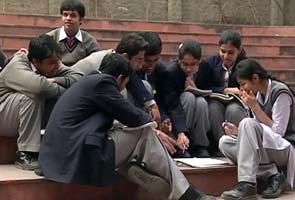
New Delhi, April 12: The Supreme Court on Thursday upheld the various provisions of the Right to Education Act, 2009.
The apex court ruled that the RTE Act would apply to all categories of public and private schools except unaided minority schools.
The SC judgement makes it clear that all schools will have to keep aside 25% of seats for poor children.
The SC said the judgement would come into effect from today.
The SC said the RTE Act will not apply to those institutions run by minority organisations and which do not receive a single penny as aid either from the government or local bodies.
The apex court also said that the RTE Act would not apply to boarding schools.
A bench comprising Chief Justice S H Kapadia and justices K S Radhakrishnan and Swantanter Kumar, which had reserved its verdict on August 3 last year, pronounced the verdict on the RTE Act.
The main petitioner Society for Un-aided Private Schools, Rajasthan, and a host of associations representing various private schools questioned the validity of the Act on the ground that it impinged on their rights to run the educational institutions.






Comments
Add new comment